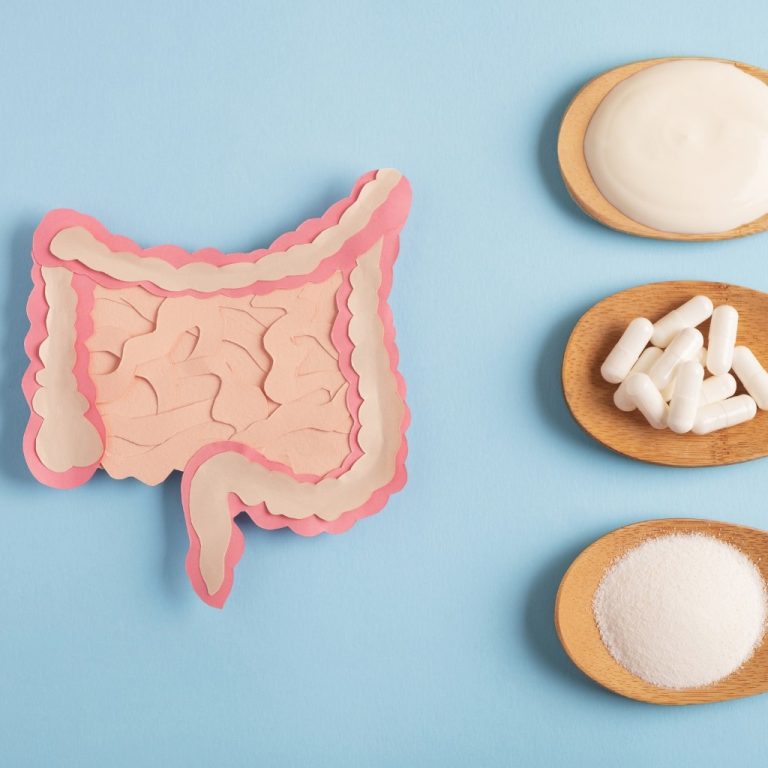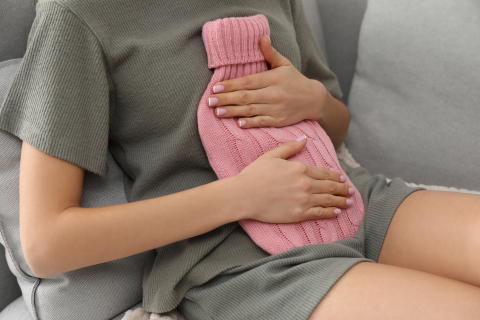Diarrhoea
Diarrhoea is when bowel movements occur more than three times a day, are increased in quantity and/or are a thin (liquid) consistency. Read more about diagnosis and treatment here.
Contents

What is diarrhoea?
Diarrhoea is determined by stool frequency and stool consistency. Depending on age, stool frequency varies significantly: an infant may need to go to the toilet 5 times a day, but once every five days is also quite normal.
Many people are convinced that they have diarrhoea – but thin or mushy stools do not justify a diagnosis of diarrhoea. The prerequisite is that stools of reduced consistency (i.e. not formed, but thin) are emptied several times a day – at least three times – accompanied by a violent urge to defecate; stool weight and volume are usually also increased.
Every year, almost one-third of the population suffers from diarrhoea at least once, but only a small proportion of those affected consult a doctor. Worldwide, more than 2 million children die of diarrhoea yearly, often caused by infections (bacteria, viruses, fungi, parasites).
What are the symptoms of diarrhoea?
Diarrhoeal diseases are usually accompanied by nausea, vomiting and loss of appetite. Colicky pain and abdominal cramps (see also “Bloating“) can also occur – the so-called “stomach flu” or “gastrointestinal flu”. The intensity of the symptoms depends on the particular pathogen, as does the length of the time interval between infection and the appearance of the first symptoms. As miserable as those affected feel, they are usually back on their feet again very quickly. One or two days on a light diet and bed rest and the patient is fit again.
But there are also severe courses. If the diarrhoea is severe and the patient does not drink enough, there may be a risk of dehydration. Severe dehydration can be seen on the skin; the skin folds remain after the diarrhoea has subsided. Urine output also decreases. The urine is conspicuously dark and concentrated. Affected persons feel increasingly sleepy and dizzy, they are at risk of circulatory problems and kidney damage. In particular, infants, toddlers and children as well as the elderly are acutely at risk due to the loss of fluids during severe diarrhoea.
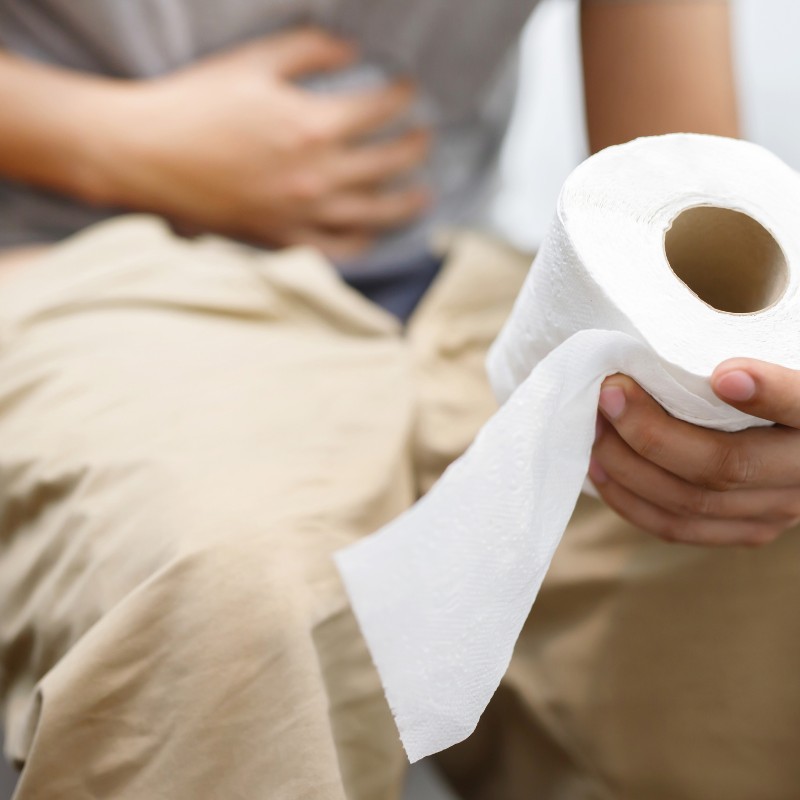
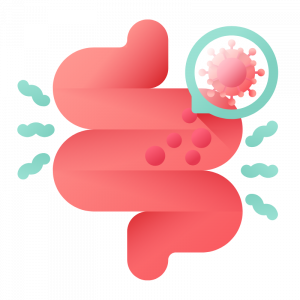
What causes can diarrhoea have?
Diarrhoea is not a disease, but a symptom that many health conditions can cause. Doctors distinguish between acute and chronic diarrhoea.

Acute diarrhoea
- Causes
Not every colonisation of the intestine with bacteria is an infection. The gut flora is part of the normal ecosystem of the digestive tract and it protects humans in particular from infections. Antibiotics can destroy this protection and trigger diarrhoea.
- The so-called “stomach flu” is usually caused by viruses (noro- or rotaviruses) or bacteria.
- Bacterial infections – such as “food poisoning” – are mainly caused by salmonella, clostridia or staphylococci. These bacteria produce toxins that attack the stomach and intestinal mucosa.
- Medication (antibiotics, laxatives, heart medication such as digitalis, painkillers, cytostatics (cancer drugs), medicines containing magnesium to neutralise stomach acid).
- Consumption of large amounts of alcohol, coffee and sweets, including excessive consumption of sugar-free sweets or chewing gum with the sugar substitute sorbitol.
- Anxiety, stress
- Traveller’s diarrhoea, usually infections with Escherichia coli bacteria.

Chronic diarrhoea
- Causes
Chronic diarrhoea is related to many different, sometimes serious diseases. Mostly, the onset is also acute. However, the symptoms of chronic diarrhoea occur for at least 3 to 4 weeks, repeatedly or in episodes. In between, the symptoms may subside again.
- Chronic inflammatory bowel disease (IBD), such as ulcerative colitis or Crohn’s disease, can mimic an acute intestinal infection, so a pathogen is first suspected as the trigger
- Medication abuse with laxatives
- “Nervous tummy” (irritable bowel syndrome)
- Inflammation of the stomach lining (gastritis)
- Inflamed intestinal diverticula (diverticulitis = inflammation of the connective tissue of the bulges in the intestinal wall)
- Tumors, polyps
- Diarrhoea after radiation treatment and chemotherapy for cancer (due to damage to the intestinal mucosa)
- Impaired food utilisation (e.g. fatty stools – steatorrhoea in liver dysfunction)
- Food intolerances: Gluten intolerance (coeliac disease), cow’s milk intolerance (lactose intolerance), fructose intolerance (fructose intolerance).
- Chronic pancreatitis
- Chronic intestinal infections including HIV infections, with immunodeficiencies
- Cystic fibrosis (a metabolic disorder in which an enzyme defect leads to increased production of thick, viscous mucus in various organs, including the pancreas and lungs, with serious functional and “food utilisation” disorders)
- Metabolic diseases (hyperthyroidism, adrenal cortical hypofunction, diabetes mellitus type 1 and 2)
Children & Diarrhoea
What are the triggers for upset stomachs? When does diarrhoea in children become dangerous? How can a baby’s gut be treated gently? And: What to do when diarrhoea comes from antibiotics?
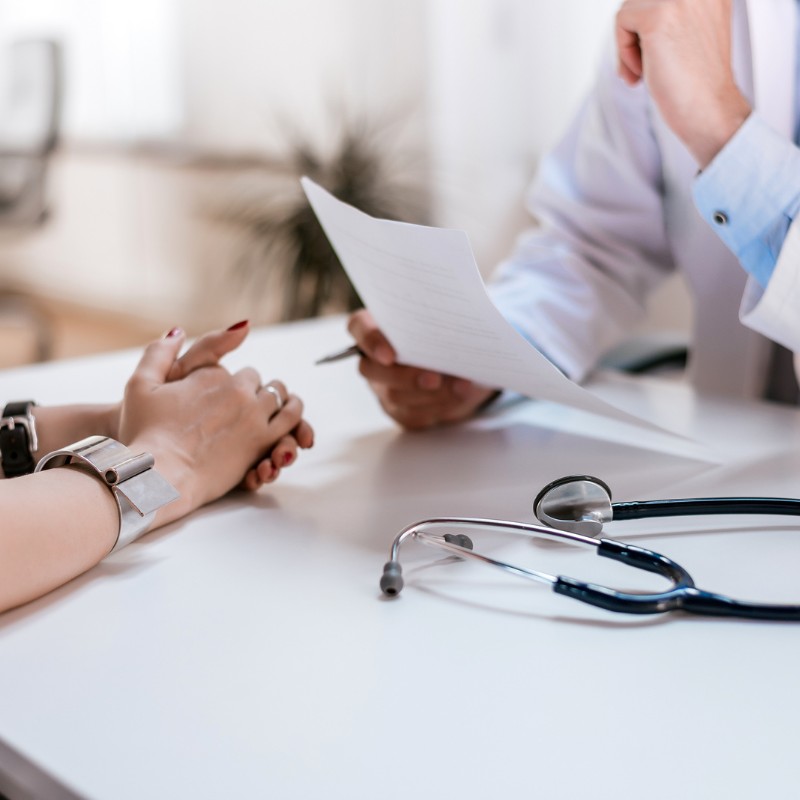
How is diarrhoea diagnosed?
Every diagnosis begins with a discussion of your medical history with a doctor. The doctor will clarify the following points:
- Stool frequency and consistency
- Eating habits
- Accompanying symptoms such as pain and flatulence, vomiting and fever
- Asking about other health conditions
- Asking about medication that is being taken and could possibly have an effect on bowel movements (laxatives, antibiotics, etc.)
- Questions about family history (presence of diseases in the family)
- Presence of organic bowel diseases (e.g. chronic inflammatory bowel disease (IBD) associated with severe diarrhoea)
- Checking the function of the thyroid gland
After this discussion, a physical examination may take place during which the doctor looks at the anus and palpates and listens to the abdomen. A stool sample can provide information about digestive disorders and functional malfunctions of the intestine. The stool is also examined for hidden (occult = not visible) blood. In the laboratory, the blood count, thyroid hormones and electrolytes such as sodium, potassium and calcium are analysed.
If the symptoms are acute, accompanied by weight loss, fever, fatigue and/or blood in the stool, serious diseases may be behind the symptom “diarrhoea” and further medical clarification of the underlying disease must be carried out. In addition to clinical examination (fever? abdominal pain? colic?), medical history (diet? laxatives?) and examination of the stool composition, in the case of chronic diarrhoea, the doctor will also suggest imaging procedures such as colonoscopy to establish the diagnosis.
Other possible diagnostic measures:
- Ultrasound examination of the entire abdomen (sonography)
- Radiological examination of the intestine (X-ray), today mostly in the form of computer tomography (CT).
What should you take for diarrhoea?
Probiotics for diarrhoea:
We need a high number of probiotic bacteria in our intestines, as only they can make food usable for our body. If the bacterial flora of the intestine is reduced by medication intake, fermentation or putrefaction processes begin, which influence the intestinal activity or also lead to increased fluid excretion and, due to toxins, to increased permeability of the damaged intestinal mucosa. Probiotics with highly active bacterial strains can lead to a normalisation of stool frequency, regeneration of the damaged intestinal mucosa and an improvement in stool consistency. Stress, which promotes the peristalsis of the intestine and additionally has a harmful influence on the balance in the intestine, should be avoided. Diarrhoea is often a symptom of irritable bowel syndrome triggered by stress, among other things.
Anti-diarrhoea medication:
- Adsorbents such as activated charcoal, kaolin, silicon dioxide and humic acids have a physical effect: they bind dissolved substances such as toxins to themselves and thus combat the cause of the diarrhoea, and minerals (potassium, sodium and others) replace the salts lost due to the diarrhoea.
- Antibiotics should only be used if the bacterial pathogens causing the diarrhoea are known and a specifically effective antibiotic is used. Parallel to the administration of antibiotics, the intestinal flora should be supported with special synbiotics.
- Butylscopolamine can help with abdominal cramps. However, you should not take this substance without a doctor's order and not for more than a few days.
How can diarrhoea be treated?
Diarrhoea is unpleasant and you want to get rid of it as soon as possible. The causes are manifold: Acute diarrhoea is often caused by spoiled food (“food poisoning”) or viral (bacterial) infections. Diarrhoea is a side effect of taking certain medicines and antibiotics. If diarrhoea persists for a long time, it is essential to consult a doctor. Chronic intestinal inflammation, metabolic diseases or food intolerances may be behind it.
Acute diarrhoea
Diarrhoea is a natural reaction, a self-help of the body to eliminate toxins. It is therefore important not to suppress this excretory process and not to immediately stop the movement of the bowels with chemical medication.
The most important thing is to counteract dehydration. This should be done by drinking plenty of fluids enriched with minerals (potassium, sodium and others) and sugar (glucose). Sugar helps to absorb fluids better; black tea contains tannins that have an antidiarrhoeal effect (if brewed long enough, at least 5 minutes) and soothe the intestinal mucosa).
Food should slowly be re-introduced, initially, no solid foods should be eaten, and milk should also be avoided. From the second day, soup is recommended. Once the intestines have calmed down, you can slowly return to normal food.
Among herbs and plants, often recommended are bloodroot, psyllium, blueberries or camomile. Humic acids also have a detoxifying effect and, along with probiotic multispecies preparations, support the regeneration of the intestinal mucosa.
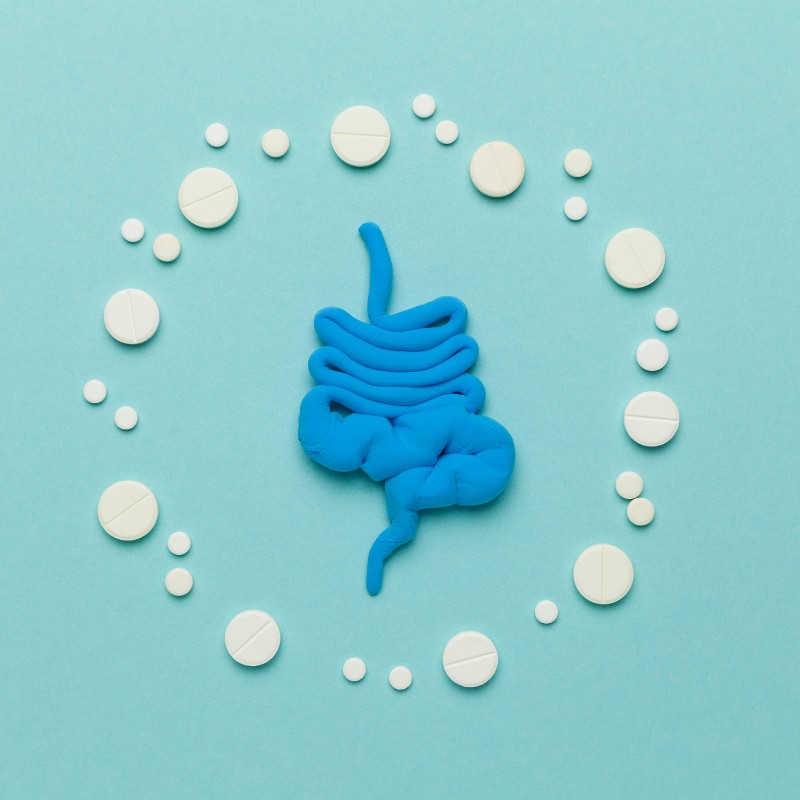
Any questions? Contact us!
Our highly-qualified consultant team is made up of doctors, pharmacists, biologists, nutritionists and microbiologists. Contact us to get advice regarding our products, your intestines, as well as your microscopic inhabitants.

Help & Advice
Institut AllergoSan
EU
OMNi-BiOTiC® − Blog
Stay informed!
Read more interesting articles about our gut and get tips for your gut health!
OMNi-BiOTiC® − Blog
Stay informed!
Read more interesting articles about our gut and get tips for your gut health!
OMNi-BiOTiC®
Our intestinal bacteria perform at their best every day. Unhealthy diets, stress or medication can change our intestinal flora. The targeted supply of specially selected strains of bacteria – called probiotics – supports our intestines in every phase of life: while taking antibiotics, in particularly demanding times or as a daily go-to for the whole family.
OMNi-LOGiC®
The intestine is the health centre of our body: billions of intestinal bacteria work every day to ensure that digestion and the body’s defences function optimally. In order for these useful helpers to feel at home and fulfil all their important tasks, they need specific dietary fibres as a food source, such as those contained in prebiotics.
META-CARE®
Many individuals struggle to obtain sufficient vitamins, minerals, and trace elements through their diet. Additionally, particularly during periods of elevated stress and heightened mental or physical strain, the body’s demand for nutrients intensifies. The body’s functions can be aided by taking high-quality micronutrients and plant extracts, enhancing your overall health and well-being.
OMNi-BiOTiC® − for a good gut feeling every day
The secret of OMNi-BiOTiC®’s success lies in its innovative formulation and high-quality standards. These are top priorities in developing probiotics and ensuring tangible benefits for users.


